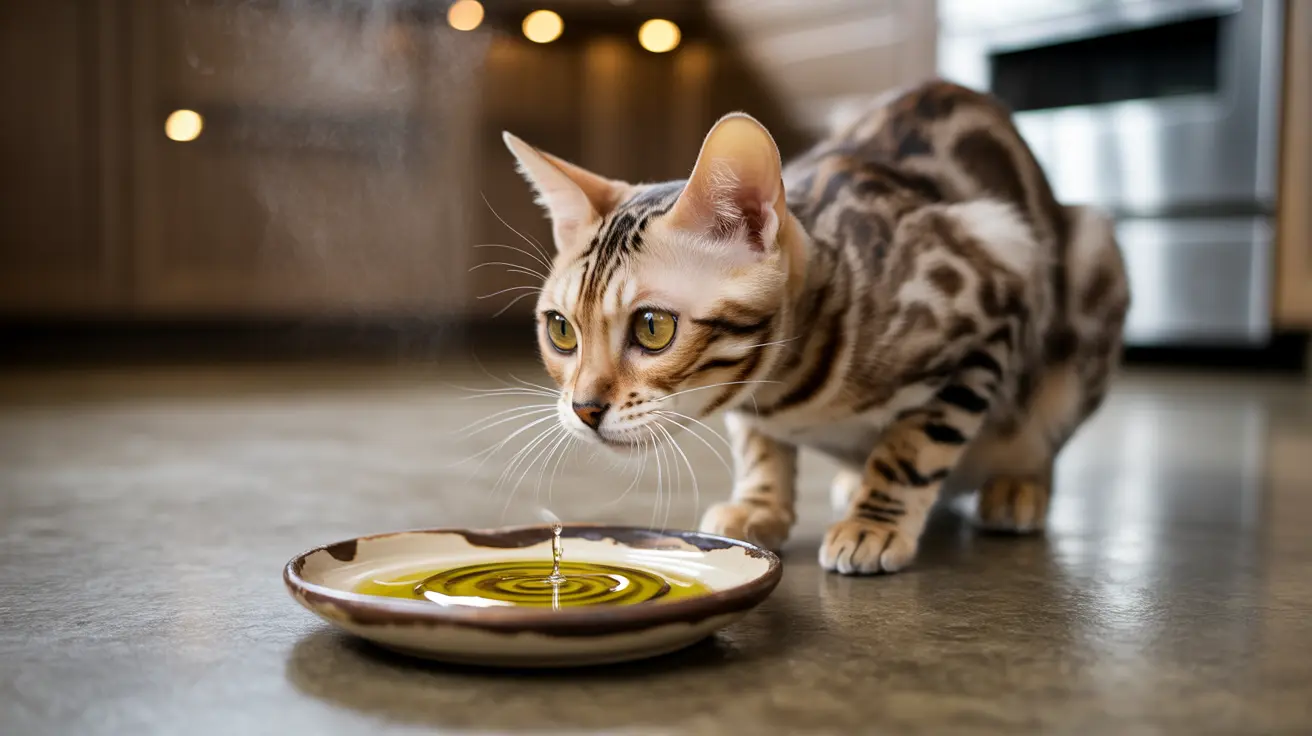Understanding Olive Oil's Effects on Cats
Olive oil is primarily fat-based, containing approximately 124 calories per tablespoon. While not toxic to cats, it's important to remember that cats are obligate carnivores, meaning their bodies are designed to process nutrients from animal sources rather than plant-based oils.
A single teaspoon of olive oil contains about 40 calories, which can represent up to 22% of an average indoor cat's daily caloric needs. This significant caloric content means even small amounts should be carefully monitored.
Potential Benefits of Olive Oil for Cats
When used appropriately and in minimal amounts, olive oil may offer some limited benefits:
- Temporary relief from mild constipation
- Possible improvement in coat condition
- Can help make food more palatable for picky eaters
- Contains some beneficial antioxidants and vitamin E
Risks and Health Concerns
The risks of giving olive oil to cats often outweigh any potential benefits:
- Digestive upset, including diarrhea and vomiting
- Significant risk of weight gain and obesity
- Possible development of pancreatitis
- Reduced absorption of essential nutrients
- Risk of creating dietary imbalances
Safe Usage Guidelines
If you're considering giving your cat olive oil, follow these important guidelines:
- Never exceed 1/4 to 1/2 teaspoon per day
- Only use occasionally, not as a regular supplement
- Always consult with your veterinarian first
- Monitor your cat closely for any adverse reactions
- Stop immediately if you notice any digestive issues
When to Avoid Olive Oil
Certain cats should not be given olive oil under any circumstances:
- Overweight or obese cats
- Cats with pancreatitis or other digestive disorders
- Senior cats with decreased fat tolerance
- Cats with existing gastrointestinal issues
- Those on special veterinary diets
Frequently Asked Questions
Can cats safely eat olive oil, and how much is considered a safe amount?
Cats can safely consume very small amounts of olive oil, but it should never exceed 1/4 to 1/2 teaspoon per day, and only occasionally. Regular consumption is not recommended without veterinary approval.
What are the potential health benefits of giving olive oil to cats?
While benefits are limited, olive oil may temporarily help with mild constipation, potentially improve coat condition, and increase food palatability for picky eaters. However, these benefits are not scientifically proven.
What risks or side effects can occur if cats eat too much olive oil?
Excessive olive oil consumption can lead to diarrhea, vomiting, obesity, pancreatitis, and nutritional imbalances. The high caloric content can contribute to significant weight gain.
How should I introduce olive oil into my cat's diet if recommended by a vet?
Start with tiny amounts (a few drops) and monitor your cat's reaction. Only proceed under veterinary guidance and stop immediately if you notice any adverse effects.
Is olive oil a good supplement for improving my cat's coat or digestion?
While olive oil might offer minor benefits for coat condition or digestion, there are more effective, veterinary-approved products specifically designed for these purposes. A balanced cat food typically provides all necessary nutrients.
Conclusion
While cats can technically consume small amounts of olive oil, it's generally unnecessary and potentially risky. Instead of adding olive oil to your cat's diet, focus on providing a high-quality, balanced cat food that meets all their nutritional needs. Always consult with your veterinarian before making any changes to your cat's diet.






